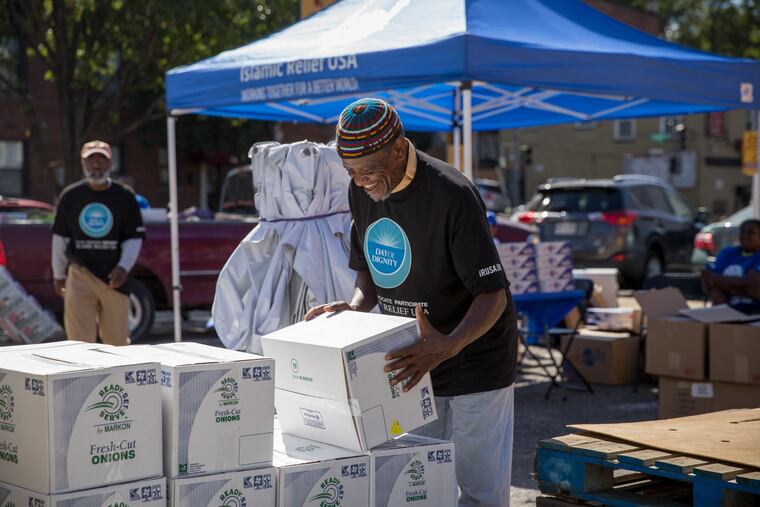A Day of Dignity to fight the challenges of poverty | Opinion
Islamic Relief USA, a nonprofit faith-based organization, will hold two Day of Dignity campaigns on Oct. 26 in the Philadelphia area to provide basic necessities, like food and winter coats, as a necessary form of support to people living in poverty.

At an October 2017 hearing of the Philadelphia City Council Committee on Commerce and Economic Development, Councilman Allan Domb described two options the city had in addressing its stubborn levels of poverty.
“We need to give people fish, or we can teach them how to fish,” he said.
Domb wasn’t referring to salmon or mackerel. He was referring to the choice of providing more direct assistance to poor residents vs. designing programs to instill self-sufficiency.
When it comes to addressing a complex problem like poverty, rarely is just one approach used, or adequate. Rather, it takes a combination of strategies.
One of the ways to “give people fish,” as Domb described it, is through Islamic Relief USA’s (IRUSA) Day of Dignity campaign. IRUSA, a nonprofit faith-based organization, will hold two Day of Dignity campaigns on Saturday in the Philadelphia area. The first, in conjunction with the Malvern-based Amana Foundation, will take place at 427 N. Broad St., starting at 9 a.m. Another, organized with the Philadelphia-based Village of Champions Youth Network, will last from noon to 5 p.m. at Newhall Manor Picnic Grove, 5320 Newhall St.
The Day of Dignity campaign strives to help people who are homeless or from low-income households get hot meals, winter coats, hygiene kits, and other items. Entertainment for children will be provided. Combined, the Philadelphia events are expected to help 950 beneficiaries.
Even in these booming economic times, poverty is still widespread in the United States. More than 38 million people still suffer from it, according to the U.S. Census Bureau.
In Philadelphia, we know the problem is especially acute. The City of Brotherly Love and Sisterly Affection has often been the subject of unflattering news and statistics on poverty, and is referred to by its unfortunate ranking as “the poorest big city in the United States.”
Nearly 26% of the population lives in poverty, and among children, the number jumps to 40%. Among the city’s public school students, the number skyrockets to 81%, Domb said at the committee hearing.
The causes of poverty are many, but one is a lack of well-paying jobs that don’t require advanced education. In Philadelphia, the report had an even more disturbing statistic: 31% of the city’s residents didn’t have jobs.
While work and personal responsibility – the targets of the “teaching someone to fish” approach -- can be a strong combination in overcoming adversity, some major economic and social factors require outside intervention because the forces are larger than any group of people can counter.
That’s where it’s essential that we as a community — elected officials, business, education, and, of course, nonprofits — do our part in coming up with tangible, workable solutions. As a compassionate society, we must ensure the well-being of some of our most vulnerable residents.
Day of Dignity can do that for a day, providing people with some of the resources to address their concrete needs. However, we also need to address the structural causes of poverty. IRUSA, for example, supports numerous livelihood projects around the world, such as support to help people grow their own crops and temporary vouchers and stipends to enroll people in vocational programs or help them prepare resumés. Both of these are examples of investing in future potential and prosperity, reducing the likelihood of long-term dependency on aid.
Domb, in that same committee hearing, suggested another helpful tool: financial literacy classes for children. We need to keep coming up with similarly innovative ideas to stay ahead of the curve.
If not, expect many more Days of Dignity in the future.
Anwar Khan is president of Islamic Relief USA, a nonprofit humanitarian and advocacy organization that works on alleviating poverty and hunger in more than 40 countries. Syed M. Hassan is IRUSA’s public affairs specialist. They can be reached at akhan@irusa.org and mhassan@irusa.org.
The Inquirer is one of 21 news organizations producing Broke in Philly, a collaborative reporting project on solutions to poverty and the city’s push toward economic justice. See all of our reporting at brokeinphilly.org.